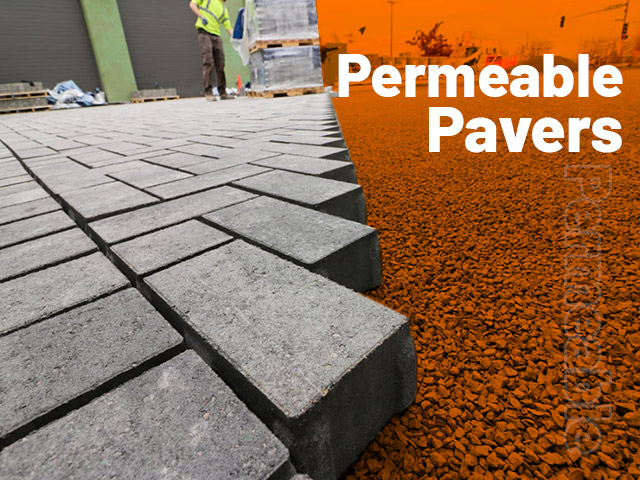
Permeable pavers are a different version of paving stones which is known also as interlocking paving stones. Its main purpose is to direct water that flows on surface such as rain water to soil or grass under stone. For this, another layer consisted of stones or various aggregates is laid under paving stones.
Permeable pavers can also be considered as a system that collects rainwater and makes it reusable. Its porous structure allows water to leak into the laid material.
Types of Permeable Pavers
Permeable pavers and other flooring materials were first designed as a solution to allow water to pass through the substrate. As this design enables both decorative and water-preventing uses, it has started to be produced in different ways over time. There are other types that can be much more permeable, such as asphalt or grass stone.
- Permeable concrete: If concrete has higher stone ratio and no sand or any other aggregate at the bottom, it has much more porosity than conventional concrete coatings. It has a more rough structure than traditional concrete, but water absorption is higher. The water discharge capacity of this kind of paving stone is limited.
- Grass stones: Permeable concrete pavers are the stones with standard gaps in the middle. These gaps are used to prevent water from accumulating and being sent water to the ground. Concrete is not permeable here. Usually, permeable pavers for driveways is preffered in small houses. For more detailed information, you can review our article “What is Grass Stone?”.
- Porous asphalt: Traditional asphalt is not porous like traditional concrete. During its application, it becomes permeable by performing different processes.
What Are the Benefits of Permeable Paving?
It is necessary to evaluate the pros of permeable pavers over different categories.
The benefits for building owners can be listed as follows:
- It gives the opportunity of water recycling by laying it on grass areas.
- It supports reducing erosion in arid areas or environments where there is not enough rainfall for the growth of plants.
- It prevents the reproduction of mosquitos, which can find a suitable environment with the accumulation of water.
- It does not allow icing when used for vehicle roads.
The general benefits are:
- It provides opportunity to increase groundwater resources.
- It allows the natural flow of rainwater, thus intervents less to the ecosystem.
- It helps filtering rainwater.
Its Difference Compared To Other Pavers
It combines durability, affordability and environmentalist features. It provides ideal solutions for many areas such as various landscaping processes, garden decoration projects, and walkways. By using GlobMAC briquette and concrete block machines, you can safely produce lawn and paving stone in the sizes you need.
